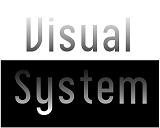As a tenant, you have the right to a tenancy agreement – a legal document that sets out the terms and conditions of your tenancy. But what happens when you want to create your own tenancy agreement? Can you do it, and is it legal? In this article, we`ll explore the ins and outs of making your own tenancy agreement, and whether it`s a good idea.
First things first – it is legal to create your own tenancy agreement. However, it`s important to note that a tenancy agreement is a legal document, and as such, it needs to meet certain requirements to be valid. This means that while you can create your own agreement, it`s recommended that you seek legal advice to ensure that it`s legally binding and protects your rights as a tenant.
If you do decide to create your own tenancy agreement, you`ll need to ensure that it includes all the necessary information. This includes details about the property, such as its address and the names of the landlord and tenant(s), the length of the tenancy, the amount of rent to be paid, and any additional fees that may be required, such as a security deposit.
It`s also important to note that certain terms in a tenancy agreement cannot be altered or removed, even if the landlord and tenant agree to it. For example, a tenant cannot agree to waive their right to a habitable dwelling or their right to a notice period before being evicted.
So, while you can create your own tenancy agreement, it`s important to ensure that it meets legal requirements and protects your rights as a tenant. Seeking legal advice can help ensure that your agreement is legally binding and helps to mitigate any potential disputes between you and your landlord.
In conclusion, making your own tenancy agreement is possible, but it`s important to ensure that it meets legal requirements and protects your rights as a tenant. Seeking legal advice and carefully considering all the necessary details can help create a legally binding and fair agreement that benefits both the landlord and tenant.
